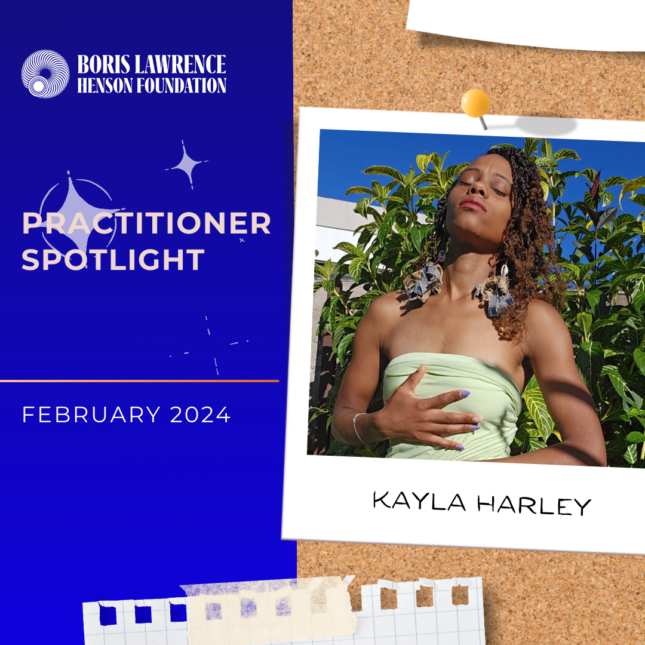
Licensed Clinical Psychologist, Professor at Tennessee State University, Acclaimed Researcher and Scientist
Company Name: Martin Psychological Services
Instagram: @raquelmartinphd
We are thrilled to shine a spotlight on Dr. Raquel Martin, a distinguished figure in the realm of mental health and wellness. Dr. Martin’s journey is as inspiring as it is impactful, driven by her unwavering commitment to advocating for Black mental health. As a professor, scientist, and licensed clinical psychologist, she brings a wealth of knowledge and dedication to her roles at Tennessee State University and Martin Psychological Services. Beyond her practice, Dr. Martin hosts the Mind Ya Mental podcast and leads the Let’s Talk About It! IG Live series in collaboration with the Boris L. Henson Foundation furthering her commitment to center the Black experience and empower individuals..
We had the privilege of delving into Dr. Martin’s innovative approaches to mental health and wellness, gaining insights into her integration of Black Identity Development, her advocacy for inclusivity in therapy, and her steadfast commitment to centering the Black experience in her practice.

BLHF: What inspired you to pursue a career in mental health and wellness?
Dr. Martin: “I always knew my career was going to focus on Black people. My mom reared me in a very Pro-Black household affirming my Blackness every step along the way. I didn’t know I was going to be in psychology until I took my first psychology class at Fisk University. Other than Black History, it was the only class that did not bore me. I learned that psychology could be a tool to take down oppression and white supremacy not just on the individual level with seeing clients but on the systemic level with research and the application of that research. Having a Black professor teach me about Black psychologists changing the world made me want to be one of them.”
BLHF: What unique methods or techniques do you use in your practice to support the mental well-being of your clients?
Dr. Martin: “I integrate Black Identity Development in all that I do, encouraging all licensed mental health professionals to educate themselves in this practice and do the same in their clinical encounters with Black people. Black identity development is an integral part of our well-being; it acts as a barrier against mental health difficulties, including the impact of racism, and is a bridge to greater self-esteem, academic achievement, and even moral development. Unfortunately, we reside in a world that was built off of our adultification and dehumanization, and we have never been re-humanized. As a result, we may experience feelings of powerlessness, traumatic stress, and difficulty trusting others. I incorporate Black identity development in my entire practice from assessment to case conceptualization to treatment planning.”
BLHF: Can you share an example of a particularly creative or effective intervention that you’ve implemented?
Dr. Martin: “I always tell my patients that I am the expert in the room when it comes to psychology, but they are the expert in the room when it comes to themselves. I don’t think this should be novel in the practice of therapy; this perceived hierarchy is what makes the process uncomfortable for so many in therapy, especially Black people. I incorporate educational empowerment and cultural education into my practice because it Builds Black identity and I conduct assessments to acknowledge and address the presence of racism-related stress. This is incredibly important because there is a difference between depression due to racism-related stress versus attachment issues or grief. If you don’t acknowledge the root of the mental health issue, the branches AKA mental health difficulties will just come right back. So many clinicians are trained in an individualistic, westernized, European centered modality of therapy, and they wonder why they’re not particularly helpful in addressing mental health difficulties in the Black community or making them feel seen in the therapy room. Only 5% of Licensed Psychologists in the United States of America are Black, and I am one of them. I make it a point to use my therapeutic, educational, scientific, and even social platforms to center the Black experience.”
Fun Rapid-Fire Round
BLHF: Favorite self-care activity?
Dr. Martin: “Reading, any and everything with a huge mug of herbal tea.”
BLHF: Go-to stress-relief song or playlist?
Dr. Martin: “My stress relief playlist is packed with songs by Aretha Franklin, Chaka Khan, Stevie Wonder, Diana Ross, Ray Charles, Nina Simone, Tierra Whack, Jay Z, Noname, J. Cole, Beyonce, Lupe Fiasco, Janelle Monae, Kendrick Lamar, Latto, Lizzo, and Megan Thee Stallion.”
BLHF: Last book or podcast that left a lasting impression on you?
Dr. Martin: “Open Water by Caleb Azumah Nelson. The book was pure poetry, and I’ve been making it a point to read more Black men and non-binary Black authors. For anyone interested in the same goal, this is a great pick.”
BLHF: One piece of advice you wish you could give your younger self?
Dr. Martin: “Have more fun. I have always been told that Black people have to work twice as hard to get half as far, and all that did was rob me of my freedom and stress me out. One of the many things that have been robbed from Black people is their freedom. Freedom to live, freedom to grow, freedom to dream. That leads to an additional stressor that we shouldn’t have to deal with in the first place.”
BLHF: Any final words of wisdom or encouragement for young adults struggling with their mental health?
Dr. Martin: “When it comes to Black youth, I have noticed that many of them go through a phase of feeling run down by the lack of positive representation, the extra responsibilities placed on them, feeling like they’re consistently misrepresented or misunderstood. I want you to understand that there is a place for you in therapy, BUT at the end of the day, therapy isn’t a requirement for healing, community is. We cannot grow or heal in isolation. You do not have to be isolated in your pain or your joy. And if you were not born into the family that you deserve, that supports and respects you, then build that family. Family of origin and family of choice are comparable. One of the most stressful things can be feeling like you have no choice, no voice, and no power. You have all of these things. Don’t let anyone tell you differently.”
Dr. Martin’s dedication to holistic healing and mental well-being serves as an inspiration to us all. We’re grateful for her tireless commitment to empowering individuals on their mental health journey. Thank you, Dr. Martin, for all that you do!
Be sure to follow Dr. Martin on social media for daily mental health tips and insights: @raquelmartinphd

Raquel Martin, PhD
Professor, Tennessee State University
Licensed Clinical Psychologist
Where to find me?
Instagram: @raquelmartinphd

